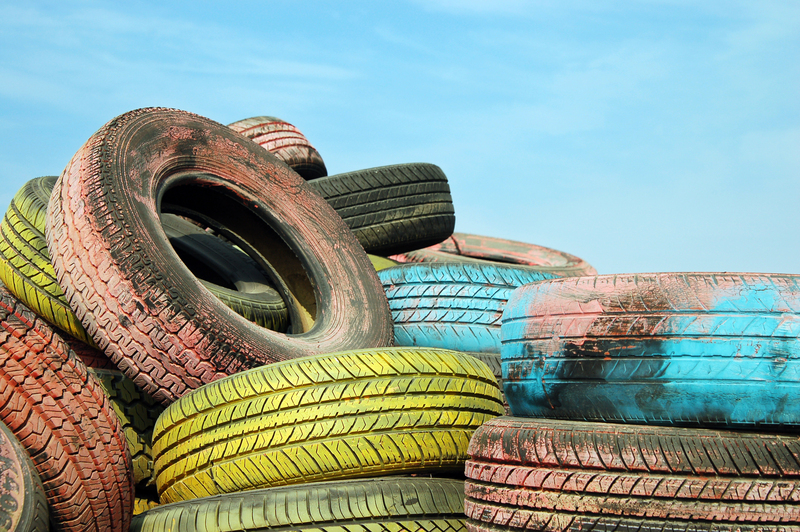Organizations That Accept Pots and Pans for Reuse or Recycling
Are old pots and pans cluttering your kitchen? Donating, recycling, or reusing them can benefit both the environment and your local community. Learn how and where to responsibly dispose of your unwanted cookware in this comprehensive guide on organizations that accept pots and pans for reuse or recycling.

Why Properly Dispose of Pots and Pans?
Millions of pots and pans end up in landfills every year. Cookware made from metal, ceramic, and glass may take centuries to decompose. By donating or recycling, you help reduce waste, conserve resources, and support charitable organizations. Proper cookware disposal also prevents harmful substances, such as nonstick coatings, from contaminating the environment.
Reuse vs. Recycling: Which Option Is Best?
- Reuse: Donating pots and pans in good condition to community organizations extends their lifespan and helps people in need.
- Recycling: If your cookware is broken or unusable, recycling ensures its materials are processed and reused instead of discarded.
In either case, choosing the right organization is key to making a positive impact.
Charitable Organizations That Accept Pots and Pans for Reuse
1. Goodwill Industries
One of the largest nonprofit thrift store chains, Goodwill regularly accepts gently used household items, including pots and pans. Donations help fund job training, employment placement services, and other community-based programs.
- Accepted: Most types of cookware in usable condition (no missing handles, cracks, or severe rust)
- Where: Find a donation center near you on the Goodwill locator.
2. Salvation Army Family Stores
The Salvation Army funds rehabilitation programs and relief services through donations made to its stores. Pots, pans, and other kitchenware in clean, good condition are generally welcomed.
- Accepted: Pots, pans, and small kitchen appliances without damage
- Where: Locate a store or drop-off center using their website.
3. Habitat for Humanity ReStores
Many Habitat ReStores accept gently used cookware. Proceeds from sold items support local affordable housing projects. If you have a large quantity of kitchen goods, some locations may even offer pickup services.
- Accepted: Gently used pots, pans, and kitchen equipment
- Where: Find your nearest ReStore using their store locator.
4. Local Homeless or Women's Shelters
Shelters for families, women, or the homeless are often in need of functional pots and pans to help create meals for residents. Donating cookware directly ensures it helps those who need it most.
- Accepted: Clean, undamaged pots and pans with lids (if possible)
- How: Search online or contact shelters in your area to confirm their donation needs.
5. Churches, Community Centers, and Soup Kitchens
Many faith-based organizations and community kitchens conduct outreach programs and may accept pots, pans, or other kitchenware. They often redistribute items or use them in their facilities.
- Accepted: Pots, pans, and utensils in working order
- Where: Look for charity organizations or food outreach programs in your region.
Organizations That Recycle Pots and Pans
1. Scrap Metal Recycling Centers
If your pots and pans are damaged beyond use, scrap metal recyclers will accept most cookware, especially if it's made from aluminum, stainless steel, or copper. Separate your nonstick-coated or plastic-handled pans, as not all facilities accept these.
- Accepted: Metal-only cookware (often without coating or plastic parts)
- How: Search for "scrap metal recycling near me" or use resources like Earth911 to find facilities.
- Tip: Remove non-metal parts, if possible, to maximize recycling potential.
2. Local Government Recycling Programs
Some municipal recycling programs offer special collection days or drop-off locations for metal cookware. Check your city's website for updates on accepted materials and specific guidelines.
- Accepted: Check if pots and pans are allowed in curbside or drop-off recycling
- Where: Contact your local waste management authority
3. TerraCycle
TerraCycle offers specialized recycling solutions for hard-to-recycle goods, including cookware. While most options are fee-based, their Kitchen Separation Zero Waste Box accepts a wide variety of kitchen items. This is a great solution if you have a mix of items to recycle together.
- Accepted: Worn-out cookware, cutlery, and kitchen accessories
- Where: See their offerings at the TerraCycle website
4. Local Nonprofits and Skill-Share Workshops
Some local organizations or makerspaces accept old pots and pans for creative reuse--think art projects, garden planters, or educational demonstrations in metalworking. This is an excellent option for repurposing items beyond traditional recycling.
- Accepted: Any pots and pans, regardless of wear and tear
- Where: Search for local art collectives, upcycling workshops, or community education centers.
Tips for Donating or Recycling Your Pots and Pans
- Clean thoroughly: Wash all pots and pans, and remove food residue or grease before donating or recycling.
- Check for local requirements: Some organizations have specific guidelines about materials or condition.
- Bundle items: Consider donating pots and pans as sets, if possible--some charities prefer this for distribution or resale.
- Remove non-recyclable parts: When recycling, take off plastic handles, lids, or nonstick coatings unless your recycler specifies otherwise.
- Contact ahead: If you're unsure, call or email the organization before making a drop-off to confirm they can accept your items.
What Types of Pots and Pans Are Most Sought After?
The following types of kitchen cookware are most often accepted for reuse or recycling:
- Stainless Steel Pans: Highly recyclable and durable; sought after by both recyclers and thrift stores.
- Aluminum Cookware: Lightweight and easy to process at scrap yards.
- Copper Pots: Valuable to metal recyclers; always remove plastic or wooden handles first.
- Cast Iron Skillets: Highly desirable for resale and cooking programs, even if they need re-seasoning.
- Enamel and Ceramic Cookware: Accepted at some thrift stores or reuse organizations if not chipped or cracked.
Items Often Not Accepted
- Nonstick pans with damaged or peeling coatings (may pose health risks)
- Pots and pans with excessive rust or missing parts
- Cookware with glass lids that are cracked or broken
Frequently Asked Questions about Pots and Pans Recycling
Can I Recycle Nonstick Pans?
Some recycling centers accept nonstick cookware if you remove the coating and separate metal from plastic parts. Always verify with your local facility before placing nonstick pans in recycling bins.
Are Donations Tax Deductible?
Most donations to 501(c)(3) nonprofits, such as Goodwill or Salvation Army, are tax deductible. Request a donation receipt and keep records for your taxes.
What If My Cookware Is Broken?
If your pots or pans are beyond repair, recycling with a scrap metal or specialized recycler is usually the best option. You may also get creative by repurposing old cookware in the garden or garage!

Creative Ways to Upcycle Old Pots and Pans
Not ready to part with your old kitchenware? Consider giving them a new lease on life:
- Planters: Drill drainage holes in pans for quirky garden pots.
- Bird Baths: Turn large, shallow pans into bird-friendly water features.
- Wall Art: Use colorful or vintage pans as unique wall decorations.
- Tool Organization: Hang pans in garages for storing small parts and tools.
Conclusion: Making the Most of Pots and Pans Reuse and Recycling
Being mindful of how you dispose of kitchen items creates a positive impact--environmentally and socially. Through a variety of organizations that accept pots and pans for reuse or recycling, you can declutter sustainably, help those in need, or even score a tax deduction. Whether donating to charitable thrift stores, recycling at local centers, or upcycling for creative use, saying goodbye to old cookware has never been easier--or more meaningful.
Choose the right option for your unwanted pots and pans and make a difference in your community and beyond!
